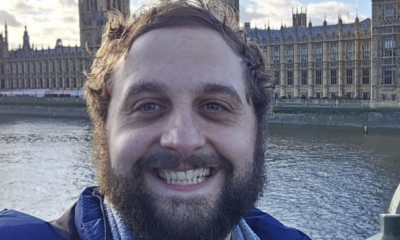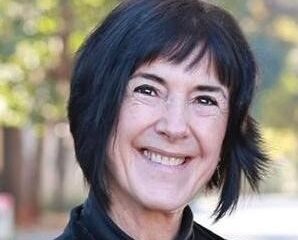
Featured Item

Why shattered reality requires better Jewish education
While the world changed for Jews on 7 October 2023, educational practices have also had to adjust, David Bryfman, the chief executive of the New York-based Jewish Education Project, told the EdJEWcation 3D conference of more than 350 Jewish educators in Johannesburg on 2 June.

“I can’t walk into a classroom of young people today with a straight face and say unconditionally that those things which were true before 7 October, like that antisemitism is fringe or a war can’t be won on social media, are now true today. And when my foundations are shattered, so too is everything else,” he said.
“Recognising that we’ve all changed is part of the importance of what it means to be an educator today,” said Bryfman whose extensive research into understanding Jewish adolescents brings a fresh understanding of what communities, religion, and organisations need to do today to deal with the new realities.
How and what Jewish educators are teaching pupils is vital, was the message from Bryfman and Mina Rush, the national director of Middle School Education at StandWithUs in Los Angeles, also at the conference.
“If a young person graduating from a Jewish school hears about the nakbah, Deir Yassin, or Rafah for the first time in a hostile environment on a college campus, we’ve failed those students,” said Bryfman.
Rush said though Jewish education was exemplary around the world, there doesn’t seem to be the same focus on Israeli education and how Israel fits into the lives of youth today.
She said one of the roadblocks she has experienced when tackling this topic is that students are given talking points and not the whole story. “If we’re using bullet points, if we’re arming our politics, if we’re arming our students with this list of bullet points, do they have enough information?” she asked.
Rush and Bryfman believe that this isn’t enough. Students must have the whole story to have a robust education.
“We need to be teaching Palestinian history to our children. But this mustn’t come at the expense of Zionist history,” said Bryfman.
“Because if we don’t, we won’t understand the reality of what is happening today. The reality of the situation is that two peoples are competing for the same land,” said Bryfman. “As educators, we cannot ignore the objective truths on the ground.”
Said Rush, “They must get their hands dirty with their intellectual curiosity, with their doubts, with their challenges, their questions, their reflections. That’s how they make meaning.
“That’s how they build, with a teacher’s help and guidance, a structure with a foundation so strong that when the ground starts to slip and when there’s an earthquake like we’re experiencing right now, it still stands strong,” said Rush. “Talking points and advocacy isn’t the answer.”
“Jewish educators need to understand the words of South African Jewish educator Avraham Infeld that ‘Jews don’t have history, but rather memory’ when it comes to Jewish and Israel education,” Bryfman told educators, “because if we have memory, it’s ours. History happened to somebody else. Memory happened to me. I don’t control history.”
Rush told a story showing the importance of reinforcing young people’s Jewish pride through Jewish and Zionist education. She received 300 phone calls in 2021 from Jewish parents saying that their children had been targeted by other students as well as by educators. They had apparently been told to “go back to the gas chambers”, kids would get off the bus and a row of students would give them the ‘heil Hitler’ salute, and swastikas were carved into desks and painted on Jewish students’ lockers and backpacks.
Rush asked these parents how they “did Jewish” in their own homes, and to her dismay, most of the parents responded with silence.
“These families identified as being Jewish,” she said. “They called an organisation that they felt would give them a proper Jewish response. They were being targeted. And yet, they had never had a meaningful conversation with their children about who they were, about what mattered most. And the first time their kid was confronted with it was through a hater.”
If parents wait for problems to arise to address issues of Judaism and antisemitism, they’ve waited too long, she said. “If we wait to have a meaningful, sophisticated, complex conversation about Jewish identity, Israel, and how Israel fits into that identity, then we’ve probably waited too long.”
Parents and their teachers need to ensure that they understand these issues long before they are faced with them from the outside, she said. “The biggest sin of Jewish and Zionist education today is when a graduate of our schools comes out and tells us, ‘you didn’t tell me’, ‘you misled me’, or even worse, ‘you lied’,” Bryfman said.
It’s not acceptable, Rush said, that teens are being told what a Jew is, who Zionists are, and what Israel is from things like social media, and haven’t figured out what it means for themselves.










